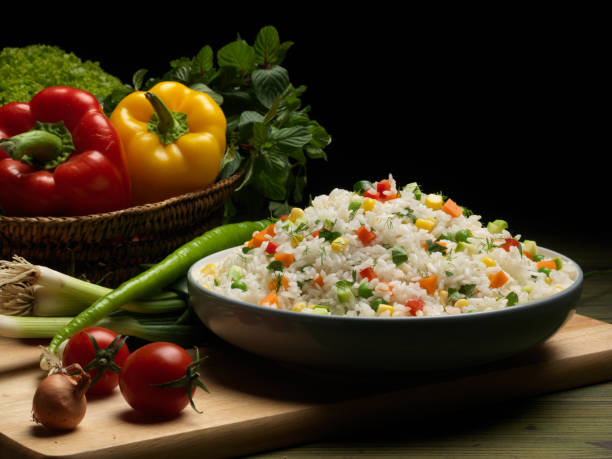Does Consuming Rice Contribute to Weight Gain?
Rice serves as a dietary staple for billions globally, offering a rich source of carbohydrates, which is essential for energy. Nevertheless, there’s a common belief that rice consumption can contribute to weight gain. What does the research indicate?
Research Insights
Currently, there’s no concrete evidence suggesting that regularly eating rice directly leads to weight gain. In fact, certain studies propose that including rice can support effective weight management.
For instance, a study in the journal Obesity revealed that those who consumed more rice, particularly whole grains, actually experienced greater weight loss compared to those who consumed less. The study also indicated that individuals who included more rice in their diets tended to have lower Body Mass Indexes (BMIs).
Another study in Diabetes Care found that increased rice consumption, especially the unprocessed kind, was associated with a significantly reduced risk of developing type 2 diabetes. This could be attributed to rice being a source of complex carbohydrates, which are digested more slowly, leading to stable blood sugar levels.
Why the Misconception?
Several factors have contributed to the misconception that rice leads to weight gain:
- High Carbohydrate Content: Rice is notably high in carbohydrates, which are converted into glucose, the body’s primary energy source. Overconsumption of calories, exceeding the calories burned, can result in the storage of excess energy as fat, and potential weight gain.
- Accompaniments: Rice is frequently consumed with high-calorie accompaniments like fried foods, fatty meats, and sugary beverages, increasing the overall calorie intake, which can lead to weight gain.
- Glycemic Index: Some individuals may be sensitive to rice’s high glycemic index, indicating how rapidly a food elevates blood sugar levels. High glycemic index foods can cause blood sugar spikes followed by crashes, leading to increased hunger and cravings, which can hinder weight loss or maintenance.
Tips for Healthy Rice Consumption
If you are concerned about potential weight gain associated with rice consumption, consider these strategies:
- Opt for Brown Rice: Choose brown rice over white rice. It’s a whole grain higher in fiber and nutrients, promoting fullness and potentially reducing cholesterol levels.
- Moderation: Consume rice in moderation, with a healthy portion being about 1/2 cup cooked.
- Pair with Nutritious Foods: Combine rice with lean protein sources like fish, chicken, or beans, and healthy fats like avocado or olive oil.
- Avoid High-Calorie Companions: Steer clear of pairing rice with high-calorie foods like fried dishes, fatty meats, or sugary drinks.
Additional Weight Management Tips
In addition to consuming rice healthfully, here are some other weight management tips:
- Maintain a well-balanced diet rich in fruits, vegetables, and whole grains.
- Limit the intake of processed foods, sugary beverages, and unhealthy fats.
- Incorporate regular exercise, aiming for at least 30 minutes of moderate-intensity exercise most days of the week.
In Conclusion
Rice is a nutritious food that can be part of a weight-loss or weight-management diet. Choosing the right type of rice, consuming it in moderation, and pairing it with other healthy foods are key factors in making it a beneficial part of your diet.
Want to Try Roop Mahal Basmati Rice ? Click here
Learn More Interesting Recipes – Click for Interesting Recipes



